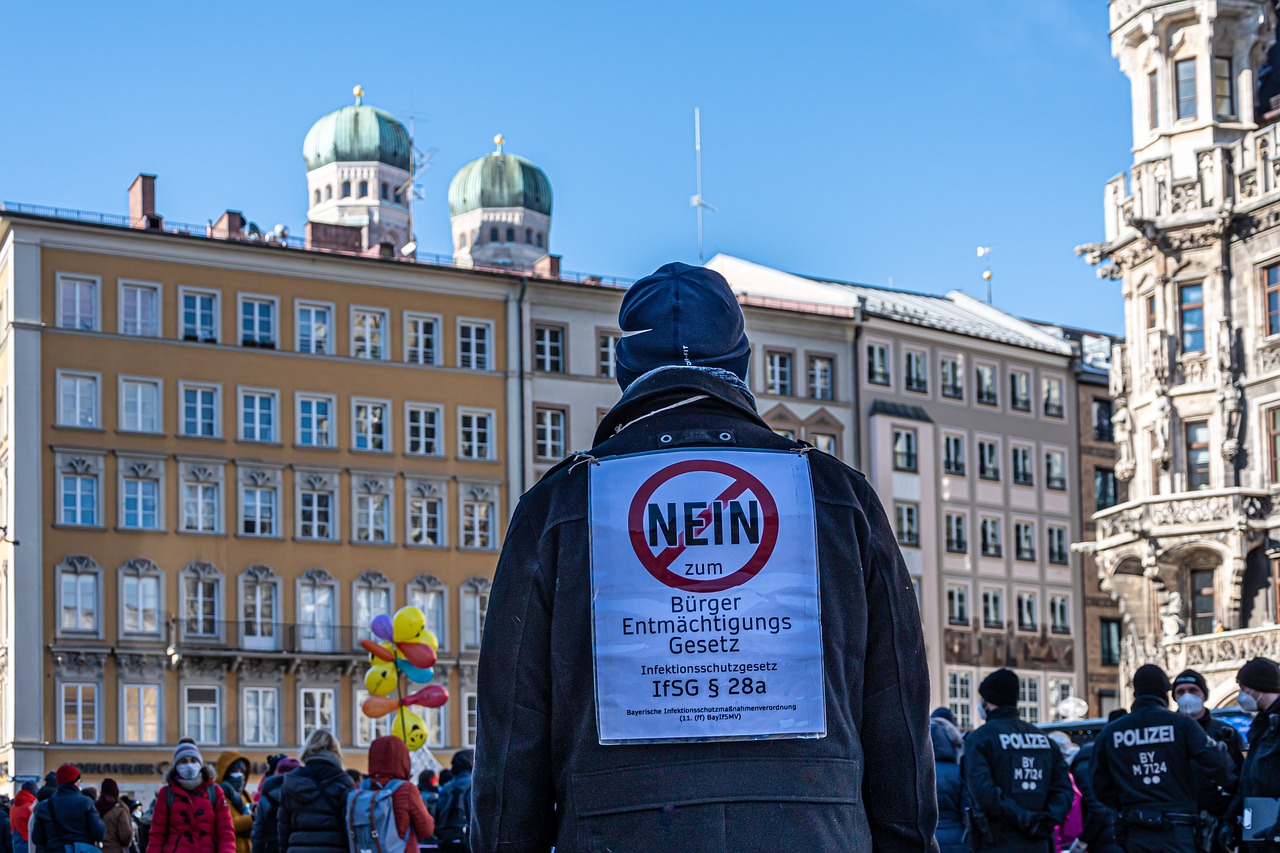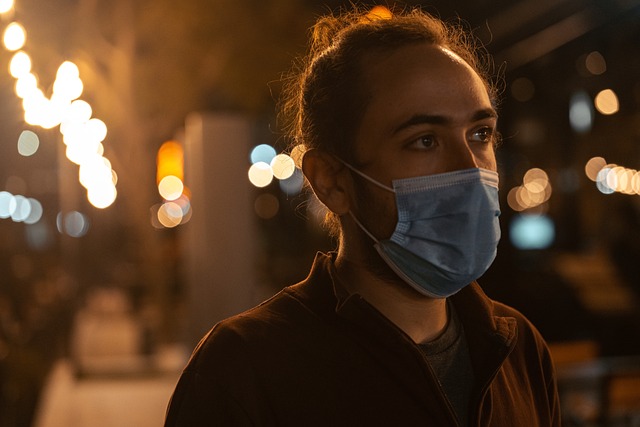Almost exactly three years ago, the first covid infections happend in a chinese city most people in the western world had never heard of. The world has changed a lot based on these events, and at the same time, it sometimes feels like covid did not change the world as much as we thought after all. The topic has been on my mind lately as here in Bavaria some of the last covid restrictions (e.g. mask mandate on public transport) have been lifted and so I want to write down how I currently view the topic.
In the beginning of covid, when most countries worldwide implemented some sort of lockdown, the changes to all our lives were most obvious. One common thought at the time was that these changes were some kind of equalizer across the traditional divides within societies, for example because everybody was stuck at home for holidays, whereas before the holiday destinations differed vastly mainly depending on a family’s net income. We soon realized that this was mostly wishful thinking as now the differences in income showed in other ways: Some families were able to provide all children all necessary learning equipment like laptops, a quiet place to do homeschooling and technical support by the parents in case something went wrong. These were, of course, those families that were better off financially. Disadvantaged families were as always hit harder as they could not spontaneously afford several computers for children, they had a higher risk of infection as they usually did not have jobs where remote working was possible, and in cases where both parents have to work, nobody was there to monitor children during school time. At the same time, office workers (me included) gained some new privileges by working from home and getting even more flexible working hours - why not go for a run during the day and add one working hour in the evening? Also, these kinds ob jobs were affected by shop and restaurant closures to a smaller degree so job security was significantly higher for those jobs that paid better anyway. These examples of the early covid times came to my mind when I thought about what had changed because of covid - there were some hopes for changes to the better but in the end it turned out that not much of these hopes remained.
Looking at what changed over a longer period, two things come to mind: masks and vaccinations. While vaccinations are commonly known, masks were previously known mostly to healthcare workers or from asian tourists. Both measures proved to be very effective, both based on anecdotal evidence and on a multitude of scientific studies that were released ever since. Both measures were also affected by economic factors, but to a lesser degree. Masks need to be bought and vaccination appointments need to be booked and might not be easy to schedule if you have one or more jobs with long or unusual working hours. But over time everyone got the possibility to use both of those measures and it was also obvious that they work fine with negligible risk and impact: wearing a mask is a minor impediment that does not hinder anyone (and there were always exceptions for people with e.g. breathing issues), and the vaccines turned out to be the most well tested medical devices in human history with an extremely small risk of side issues (yes, they happend, and yes, a few people died as a result, but looking at the numbers, it is nowhere near the same magnitude as the covid deaths).
So we have the necessary measures. There are some potential issues:
- People do not believe that the measures are working
- People believe the measures are working but do not want to use them for some other reason
- People do not see the issue is big enough that the measures are necessary
The first issue is due to misinformation, Fake News, conspiracy theories, you name it. We have seen all variants of that in the last years. Many of us were surprised to see friends and family suddenly following strange ideas they read somewhere or heard from someone. That topic is way too complex for me to discuss here and honestly, I do not really have any idea what can be done about it.
The second issue is mostly due to convenience. Why wear a mask when not wearing a mask is more comfortable? The fact that masks are really not that uncomfortable does not seem to influence this very much.
The third issue is probably the most interesting one. Many argued that for most people in most countries, the begin of covid has been the biggest single change to lifestyles since the second world war, especially as the changes happened within days or weeks. So one has to assume this massive change has to have a massive impact that people will remember for a long time. Right? Well, only partially. Yes, everybody remembers the impact the lockdown had on their lives. But that is already the problem: we remember the lockdown and not so much the reason we had for implementing a lockdown. Why? For me there are three main reasons:
- The prevention paradoxon: if a crisis is avoided with massive effort, then everybody thinks it was never that bad and all the warnings were exaggerated. This is the saying: “there is no glory in prevention”. If a crisis does not happen, nobody will be thankful to the people who have helped avoid it. If there is a crisis we tend to rally behind people and politicians who we think can handle the crisis. Nobody wins an election for having avoided a crisis.
- Post hoc ergo propter hoc: basically, confusing correlation with causality. Many thing happened over the past two years and we tend to see causality everywhere. At the end of 2022, many children are in intensive care. Many children were subject to covid measure over the last two years. Is there some connection? Probably. Is one the direct cause of the other just because they happened after one another? Very unlikely. As always, the real connection is way more complex and cannot be summed up in two sentences, which is why we tend to search for the easier explanation.
- Hindsight bias: for past events, we assume they were logical to happen because we now know how everything turned out. But in the situation back then, with much less information, this was never that clear. For example, when talking about the very first lockdown most countries did, it is easy to compare cost and benefit of all measures taken today. But we forget how much we did not know back then: how deadly is the virus really? How dangerous is it in which age groups? Who is affected by long-term consequences? What are second- and third-rate consequences of implementing a lockdown? Without knowing all of these factors the decisions get way more complicated. We know know that for many children, the virus is quite harmless. But was this clear from the beginning? Should we as a society really have gambled with the health of our children hoping it would turn out well? We always have to remember to rate a decision with the context under which it was made, not with knowledge that was impossible to have at that point.

I am not an expert on any of these points but these are what I think are some of the reasons we have such a hard time learning from past events. The question is, what are the consequences of not learning from these events as a society? What can we learn from our handling of this crisis for the next one, be it another pandemic or something else?
We get the politicians and thereby the politics we as citizens deserve. If we show in our daily lives and decisions that avoiding any small negative disadvantage, even if it serves a long-term goal, is our main concern and we do not care that much about the bigger consequences of our actions, our politics will mirror that. If all we ever talk about is getting back to the life we had before covid, then this will be visible in the kinds of politics that are implemented. If the public outcry over wearing masks on buses or in schools is bigger than the outcry about deteriorating quality of public education, then it is clear where the focus of politicians will be. Additionally we have to admit that covid is a pretty small, manageable crisis. Virology might be complicated but it took the best experts on the planet less than a year to develop a solution (the mRNA vaccines). Extrapolating onto the obvious bigger crisis that we face no only for the next three, but probably the next three hundred years, how likely is it that we will be able to solve it in time? If we are not able to accept some minor changes to our lives for more than two years in order to avoid something which can literally kill us or those we love within a few days or weeks, will we be able to continuously accept drastic changes to the foundations of our society and economy over the next years and decades? Especially for an issue that nobody directly dies or gets sick of, and even then those who are hit hardest by floods, droughts and other environmental catastrophes are ofthen in countries far away? What are you willing to change in your life for someone you will never meet, who lives in a country you would probably not find on a map?
In the end, politicians are just people trying to do what they feel is best for us citizens. If we as a society show that we have learned nothing from the worst crisis we can actively remember, can we really expect them to be better than us?

 Snowpro Data Engineer part 3 - Storage & Data protections
Snowpro Data Engineer part 3 - Storage & Data protections